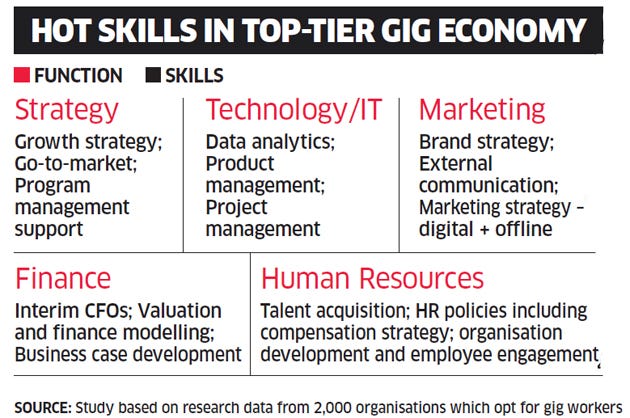The gig economy has been celebrated as a revolution in modern labor—flexible, fast-paced, and full of opportunity. But beneath the surface of short-term contracts and side hustles lies a quieter erosion: the steady decline of deep skills and the disappearance of mastery. While quick gigs may fill a calendar, they rarely build the kind of legacy or craftsmanship that stands the test of time.
At Remin, we believe in the value of what lasts—whether it’s a memory, an idea, or a skill nurtured through dedication. This article explores how the structure of today’s gig-driven world is silently reshaping not just how we work, but who we become.
Introduction: The Rise of the Gig Economy
According to a recent report by Park University, more than 36% of American workers are involved in gig work. That number is rising globally, spurred by apps and platforms that promise freedom and self-determination. But freedom can be a double-edged sword—especially when long-term growth is sacrificed for immediate deliverables.

- Gig economy jobs range from food delivery and ridesharing to graphic design and programming.
- Most gigs offer low commitment, limited feedback, and no clear career trajectory.
- Workers often juggle multiple clients, platforms, and contracts.
What Are Deep Skills and Why They Matter?
Deep skills are not tasks—they are disciplines. They take years to cultivate and demand more than repetition. Whether you’re perfecting violin technique, writing enduring literature, or mastering a language, these skills form the foundation of professional and personal excellence. They are the legacy of focused work—work that matters.
According to an Emerald academic study, long-term learning environments enable the type of cognitive, emotional, and technical growth that gig roles often fail to support.
“Mastery is not the result of speed. It is the result of stillness, iteration, and devotion.” – Anonymous Artisan
In contrast, the gig model prioritizes agility over depth, speed over nuance. The consequence? Skills once passed from master to apprentice are now diluted into clickable checkboxes and instant ratings.
Gig Economy vs Traditional Employment Models
Let’s compare how traditional employment and the gig economy stack up when it comes to skill development:
| Aspect | Traditional Employment | Gig Economy |
|---|---|---|
| Learning Curve | Long-term, structured, feedback-based | Short-term, fragmented, often isolated |
| Mentorship | Common; part of culture | Rare or absent |
| Career Trajectory | Visible, promotable | Flat; based on task completion |
| Skill Depth | High potential for mastery | Low emphasis on expertise |
It’s easy to see the tradeoff: in chasing variety and autonomy, we risk sacrificing the cumulative growth that leads to excellence.
Why Mastery Suffers in the Gig Economy
Short-Termism and the Erosion of Expertise
Platforms like Upwork and Fiverr reward speed, volume, and responsiveness. But expertise can’t be microwaved—it requires seasons of repetition, feedback, and even failure. When every job is a race against time, few workers invest in the discipline required to become great.
As GetMarlee explains, the gig economy incentivizes productivity over intentionality. The algorithm cares about 5-star reviews, not whether your work reflects soul or legacy.
The Pressure to Stay Shallow
Many freelancers and gig workers report an endless grind—taking on multiple tasks just to make ends meet. There is rarely time, let alone encouragement, to go deep. In this system, workers become efficient… but not exceptional.
- There’s no guarantee of return clients or long-term relationships.
- Few projects allow space for innovation or personal growth.
- The pursuit of craft is replaced by the need to stay visible and available.
“You can’t become a master in a world built on constant hustle.” – GetMarlee
The Role of Platforms: Convenience Over Craft
Algorithmic Control and Its Impact on Human Potential
Many gig platforms function not as communities of professionals, but as marketplaces run by algorithmic overlords. Assignments are filtered through AI; performance is judged by clients who may not understand the nuance of the work.
This structure doesn’t just undervalue deep skills—it often erases them. A thoughtful designer may lose out to someone who promises faster turnaround. A careful writer may be skipped for a cheaper one. This race to the bottom doesn’t build future legacies—it buries them.
In our rush to optimize and automate, we are forgetting how to value what’s human.
Continue reading the second half of the article where we explore the psychological toll, share real-world voices from gig workers, and offer hopeful alternatives for reclaiming mastery in a fragmented economy.
Psychological Effects of Skill Devaluation
Burnout, Anxiety, and Lack of Career Fulfillment
When individuals are forced into repetitive, shallow work cycles without the chance to grow, the results go beyond professional dissatisfaction—they seep into emotional well-being. Gig workers often report burnout, disconnection, and a haunting question: “What am I building?”
A recent image shared on Substack reveals the invisible toll of this lifestyle—freelancers racing to keep up while never truly arriving anywhere.

“There’s no sense of completion. Every gig ends the same—onto the next, with no time to reflect or grow.” – Independent Designer, 34
Without mentorship, growth pathways, or deep feedback loops, many in the gig economy feel isolated. They’re paid to perform—not to develop. That difference, over time, weighs heavily.
Voices from the Field: Real-World Experiences
Here are stories from real individuals navigating the gig landscape:
- Tony, Software Developer (41): “I used to love coding. Now I’m just writing scripts for quick money. There’s no time to architect something meaningful.”
- Ana, Illustrator (28): “Clients want fast art, not good art. I’ve stopped experimenting—there’s no budget for creativity.”
- Linh, Content Writer (36): “I have hundreds of published pieces, but none of them feel like mine. It’s ghostwriting without a voice.”
Each voice echoes a similar theme: output over ownership. In a culture obsessed with metrics and delivery times, personal fulfillment gets lost in the noise.
Rethinking Success: Rediscovering the Value of Mastery
At Remin, we champion the long view. The kind of work that leaves a trace—like a story told across generations, or a craft passed from one heart to another. Mastery matters because it is how we leave something behind that’s truly ours.
Society must evolve to value:
- Long-term skill development over short-term metrics
- Mentorship cultures instead of platform rankings
- Deep human connection through work
True mastery is not profitable in the short term—but it is priceless over a lifetime. That’s the kind of legacy we believe in building.
Solutions and Alternatives: Rebuilding Deep Work Culture
Upskilling and Long-Term Thinking in a Gig World
All is not lost. Even within a gig framework, individuals and platforms can make space for depth. Here’s how:
- **Set boundaries**: Take on fewer tasks and allow time for thoughtful execution.
- **Invest in learning**: Dedicate time each week to go deeper into your craft.
- **Find purpose-aligned clients**: Seek those who value originality and mastery.
- **Collaborate**: Build communities of practice with fellow professionals.
Additionally, platforms can evolve by:
- Encouraging long-term client-freelancer partnerships
- Rewarding quality and innovation, not just speed
- Promoting case studies of deep, meaningful work
These actions move us closer to a healthier model of work—one that honors the human spirit, not just the algorithm.
Final Thoughts: Mastery in the Age of Hustle
We live in a world where fast is often mistaken for valuable. But at Remin, we ask: What survives the rush? What gets passed down?
The answer is clear: deep skills, honest work, and a commitment to craft. The gig economy may offer convenience, but it risks flattening the very soul of what it means to build something enduring. We urge you to pause, reflect, and choose the kind of work that will be remembered—not just completed.
“Death is not the end. It is the beginning.” – Remin
Frequently Asked Questions (FAQs)
Is the gig economy harmful for long-term careers?
Not inherently, but without structure or intention, it can lead to burnout and skill stagnation. It’s crucial to carve space for deep growth even in flexible work.
How can I preserve my mastery while freelancing?
Choose clients who value your input, set boundaries to protect deep work time, and continually upskill beyond client requirements.
Do all industries experience this problem?
Industries rooted in craft, healthcare, research, or the arts are more resilient. But many fields are feeling the pressure to prioritize speed over skill.
What is Remin’s role in preserving deep work and legacy?
Remin is a space where your memories, creations, and values are safeguarded. We believe your work—and who you are—deserve to be remembered beyond the noise of now.

